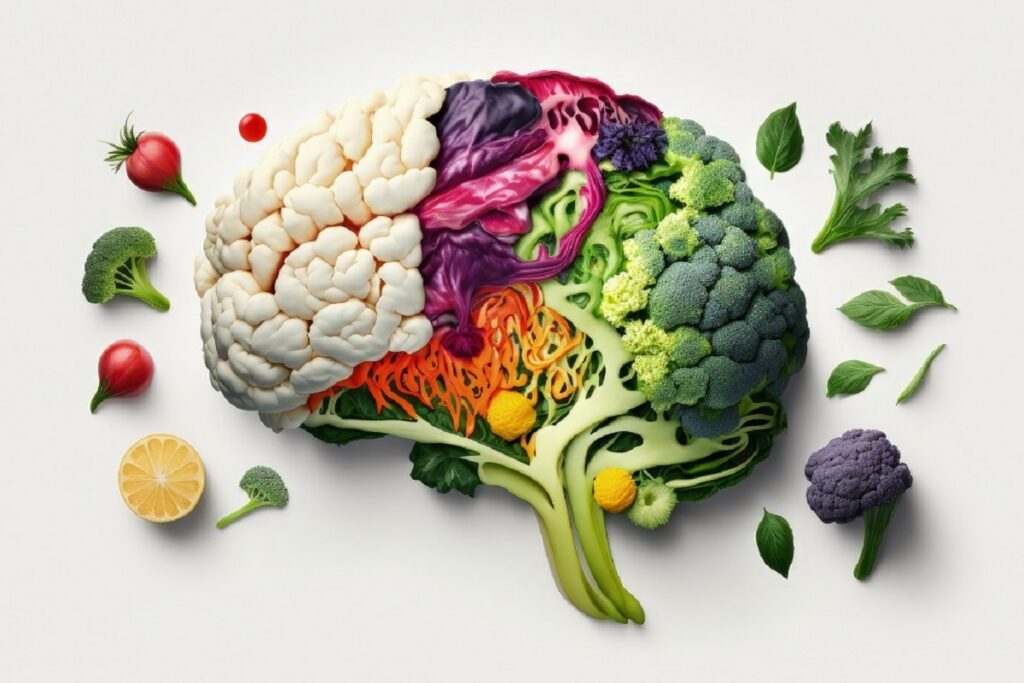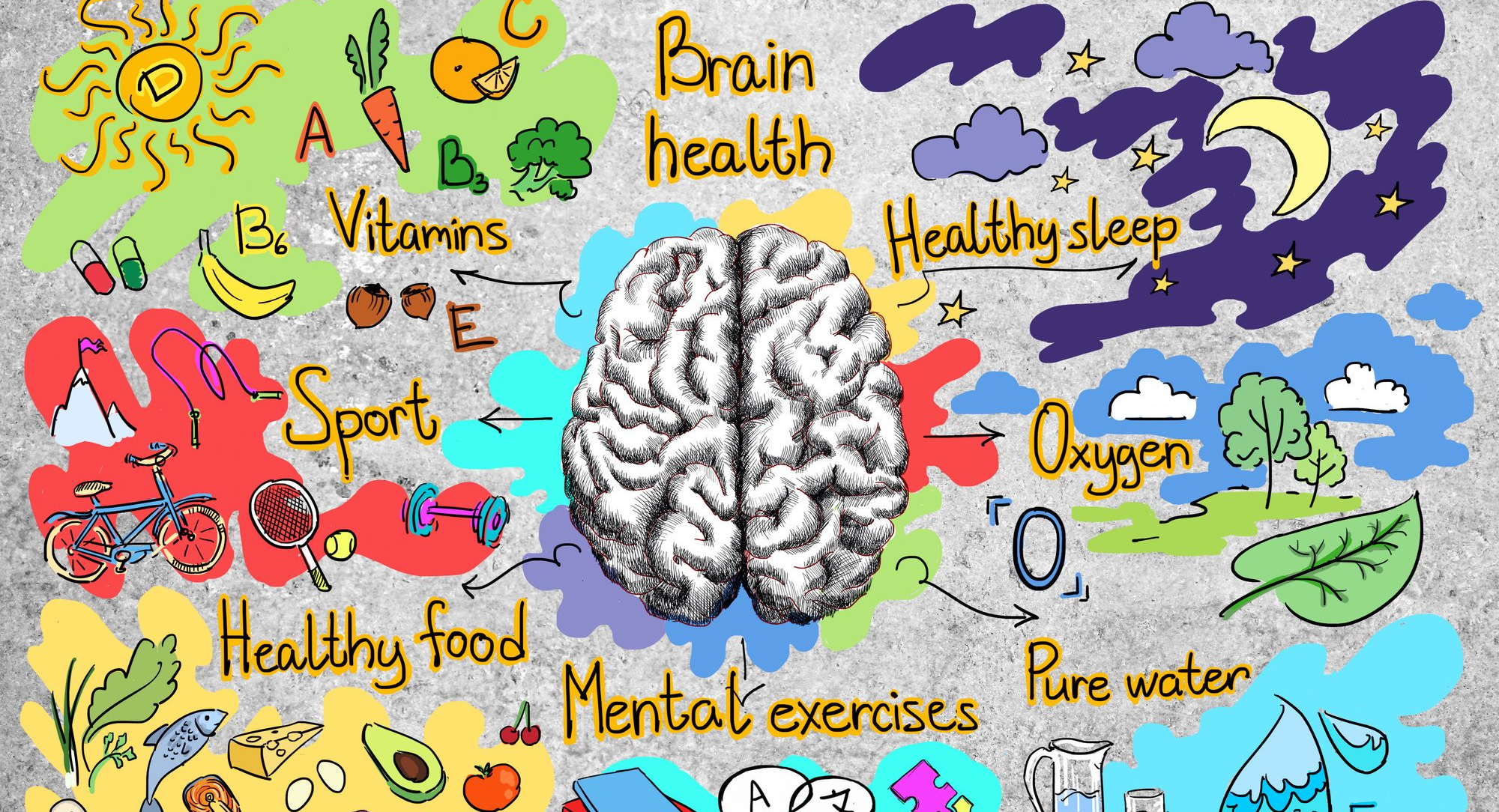As we age, it’s natural for our cognitive functions to experience some decline. However, our diet plays a crucial role in maintaining and even enhancing brain health. Consuming certain foods can help slow down cognitive decline and boost memory, focus, and overall mental clarity. In this article, we’ll explore some of the best foods to incorporate into your diet to support cognitive function.
The Power of Antioxidants
Antioxidants are compounds that help combat oxidative stress in the brain, a major factor in cognitive decline. Foods rich in antioxidants can protect your brain cells from damage and improve overall cognitive function.
Berries: Blueberries, strawberries, and blackberries are loaded with antioxidants called flavonoids. These compounds have been shown to improve memory and cognitive function. Studies suggest that regularly consuming berries can delay cognitive aging and reduce the risk of neurodegenerative diseases.
Dark Chocolate: Yes, you read that right—dark chocolate is not only a delicious treat but also a brain-boosting food. It contains flavonoids, caffeine, and antioxidants, all of which can improve cognitive performance and enhance mood. Opt for dark chocolate with at least 70% cocoa content for the maximum benefit.
Omega-3 Fatty Acids: Essential for Brain Health
Omega-3 fatty acids are vital for maintaining brain health and function. They contribute to the structure of brain cells and have anti-inflammatory properties that can protect the brain from cognitive decline.

Fatty Fish: Fish such as salmon, mackerel, and sardines are excellent sources of omega-3 fatty acids. These fish contain high levels of EPA and DHA, two types of omega-3s that are particularly beneficial for brain health. Regular consumption of fatty fish has been linked to improved memory, better cognitive function, and a lower risk of Alzheimer’s disease.
Chia Seeds: For those who prefer plant-based options, chia seeds are a fantastic source of omega-3s. They are also high in fiber and other nutrients that support brain health. Adding chia seeds to your smoothies, yogurt, or salads can help boost your omega-3 intake.
The Role of Vitamins and Minerals
Vitamins and minerals are crucial for maintaining optimal brain function. They play various roles in brain health, from supporting neurotransmitter production to protecting brain cells from damage.
Leafy Greens: Spinach, kale, and collard greens are rich in vitamins such as A, C, and K, as well as folate and beta-carotene. These nutrients are essential for cognitive function and may help reduce the risk of cognitive decline. Regularly incorporating leafy greens into your diet can support brain health and overall well-being.
Nuts and Seeds: Nuts such as walnuts and almonds, as well as seeds like pumpkin and sunflower seeds, are packed with essential nutrients. They are rich in vitamin E, magnesium, and zinc, all of which support brain health and cognitive function. Vitamin E, in particular, is known for its antioxidant properties, which help protect brain cells from oxidative stress.
Whole Grains and Brain Function
Whole grains are a great source of complex carbohydrates, which provide a steady supply of glucose to the brain. This steady supply helps maintain mental clarity and cognitive function throughout the day.
Oats: Oats are an excellent source of fiber and complex carbohydrates. They help regulate blood sugar levels, providing a consistent energy supply for the brain. Starting your day with a bowl of oatmeal can enhance focus and mental performance.

Quinoa: Quinoa is another nutrient-dense whole grain that supports brain health. It is rich in B vitamins, which are crucial for brain function and energy production. Incorporating quinoa into your meals can help support cognitive health and overall well-being.
The Impact of Hydration
While not a food per se, hydration is vital for cognitive function. Dehydration can impair attention, memory, and overall cognitive performance.
Water: Drinking enough water is essential for maintaining cognitive function. Aim for at least 8 glasses of water a day to keep your brain hydrated and functioning at its best. Adding a splash of lemon or cucumber can make water more enjoyable and add a touch of extra nutrients.
Herbal Teas: Certain herbal teas, such as green tea and ginkgo biloba tea, can also support cognitive function. Green tea contains L-theanine and caffeine, which can improve attention and memory. Ginkgo biloba is believed to enhance cognitive function and increase blood flow to the brain.
The Benefits of a Balanced Diet
Incorporating these brain-boosting foods into your diet can have a significant impact on cognitive function. However, it’s important to remember that a balanced diet is key to overall health. Consuming a variety of nutrient-rich foods, staying hydrated, and maintaining a healthy lifestyle will support not only your brain but also your overall well-being.
A Balanced Approach: Instead of focusing solely on individual foods, aim to create a well-rounded diet that includes a mix of fruits, vegetables, whole grains, lean proteins, and healthy fats. This balanced approach ensures that you get a wide range of nutrients that support brain health and cognitive function.
Mindful Eating: Paying attention to how and when you eat can also impact your cognitive health. Eating regular, balanced meals and avoiding excessive consumption of processed foods can help maintain stable energy levels and support optimal brain function.
Conclusion
Maintaining cognitive health as you age is a multifaceted process that involves more than just diet. However, incorporating certain foods into your daily routine can play a significant role in supporting and improving cognitive function. By focusing on antioxidants, omega-3 fatty acids, vitamins and minerals, whole grains, and proper hydration, you can help protect your brain from decline and enhance your mental clarity.
Remember, the best approach is a holistic one. Combine these brain-boosting foods with a healthy lifestyle that includes regular exercise, mental stimulation, and adequate sleep. Your brain will thank you for the care and attention, helping you stay sharp and engaged in the years to come.
